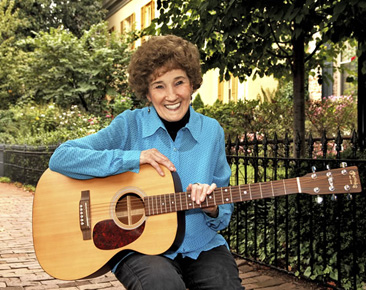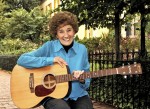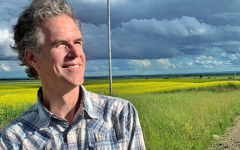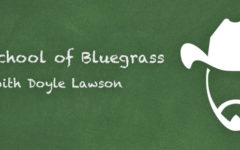
 Another year, and Hazel Dickens is still not a member of the Bluegrass Music Hall of Fame.
Another year, and Hazel Dickens is still not a member of the Bluegrass Music Hall of Fame.
This is a slight that must be righted. But here’s the cold, hard truth. It’s possible that she never makes the cut.
This year’s inductees, announced Wednesday, are the five original members of the Seldom Scene – John Duffey, Ben Eldridge, Tom Gray, John Starling and Mike Auldridge – and bluegrass and folk music historian Neil Rosenberg. I’m not arguing that they aren’t worthy. In fact, the Scene’s selection was long overdue.
Some argue that Hazel wasn’t strictly a bluegrasser. Years ago, the same argument was made about the Seldom Scene. And years from now they’ll be made by some shortsighted people about Sam Bush and Missy Raines.
Others argue that it wouldn’t be right to honor Hazel without also honoring her longtime musical collaborator Alice Gerrard. That undervalues Hazel’s contributions as a songwriter.
There are other arguments, too. One school of thought is that there are better songwriters than Hazel who aren’t in the Hall of Fame. This may be true. (The underrepresentation of songwriters in the Hall is a whole other can of worms for me to open some time.) Another is that there are better singers and pickers than Hazel. This is most certainly true.
But show me a strong songwriter and performer who also cleared the path for women as featured performers and band leaders in bluegrass. I’m betting you can’t do it. It’s a very short list that pretty much starts and ends with Hazel Dickens.
When she died in 2011, at 75, The New York Times remembered her as “a clarion-voiced advocate for coal miners and working people and a pioneer among women in bluegrass music.”
Pioneer is a term that gets thrown around a lot in bluegrass, usually to denote someone named Monroe, Scruggs, Flatt, Stanley, Martin and the like. But consider this: Without Hazel Dickens, there’s a strong possibility that the bluegrass world would never have seen Claire Lynch, Dale Ann Bradley and Alison Krauss fronting their own bands.
But I think there’s something else holding Hazel Dickens back: The makeup of the panel that has such a large say in choosing the annual Hall of Fame entrants. These electors are professionals with at least 10 years in bluegrass. The last time I looked, bluegrass is still dominated by men. I’m not being judgmental. That’s just a fact. And when you look at bluegrassers with 10 years or more under their belts, it’s probably even more predominantly male.
Now, let’s look at the membership of the Hall of Fame. There is one woman in the Hall for her individual contribution, Louise Scruggs. She’s there for her groundbreaking work as a booker and publisher. The only female performers who have been inducted are Sara and Maybelle Carter, who got in as part of the Carter Family in 2001. (There were also female members of the Lewis Family, inducted in 2006, though the band was mostly men for nearly all of its existence).
In other words, there’s not one woman in the Hall of Fame for an individual contribution to bluegrass music, and only one for an individual contribution to the bluegrass business. What’s wrong with this picture?
Some day, these shortcomings will start to be addressed — when Claire and Alison and Missy (the most-decorated female instrumentalist with seven bass player of the year statues) come up for consideration. Songwriter Dixie Hall may make the cut someday, too, along with a female broadcaster or two.
But I think it’s fair to argue that those I named wouldn’t have had the chance for out front, Hall-of-Fame-caliber careers if Hazel Dickens hadn’t blazed the trail for them.
And it would be a travesty if any of them got there before she did.







